AK Press is a worker-run collective that publishes and distributes radical books and other media to expand minds and change worlds. We’re anarchists, which is reflected both in the books we provide and in the way we organize our business. Decisions at AK Press are made democratically, from what we publish, to what we distribute and how we structure our labor. Our goal is supplying radical ideas to as many people as possible. The books and other media we distribute are mostly published by independent presses, not the corporate giants. We make them widely available to as tools for social movements struggling to build a new world.
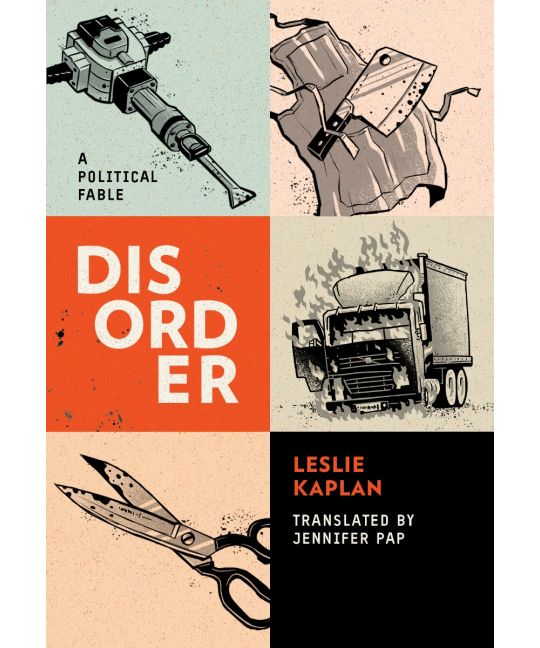
Disorder
“With a cold humor and serial neutrality worthy of the Marquis de Sade, Leslie Kaplan recounts incidents of sudden and ‘inexplicable’ violence that take place one spring, all over France. This fable about the movement of the yellow vests perfectly and artfully captures the mystery of any movement’s essential ingredient: each discrete and individual act of rage.”—Rachel Kushner, author of The Mars Room and The Flamethrowers
“In Disorder, a decapitating political fable, Leslie Kaplan invents the ‘class crime’ … Putting words to everyday situations of domination, [she] inscribes a joyfully emancipatory text, a pathway to the literary act that suggests that another world is possible.” — L’Humanité
In this brilliant and hilarious political fable, Leslie Kaplan imagines a series of crimes occurring throughout France. In each, a subordinate kills someone in a superior position, typically with an object used in their workplace. These acts clearly express widespread anger and indignation, but the media and public figures are loathe to admit such motivations, which would reveal that social violence originates from above, not below. This denial of reality creates another thread of joyful, dark satire: the fumbling of “experts” who mobilize theory after theory to analyze what is happening, without admitting that the events could have any political content. The comic effect of this tale invites us all to consider new ways of thinking and living.
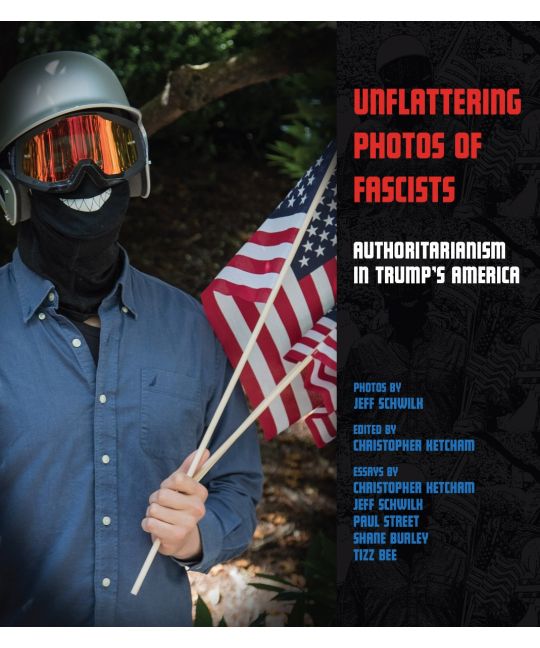
Unflattering Photos of Fascists
Christopher Ketcham introduces us to a nightmare landscape that is peculiarly American. Alt Righters. Neo-nazis. Boogaloo Bois. White nationalists. Western chauvinists. These creatures roam the streets, often indistinguishable from their wider kin, the Trumpenvolk. These motley groups come together occasionally to threaten, bully, and assault others, seeking “safe space” for their hate. They are pathetic. And our photos show it.
Jeff Schwilk has been fighting hate in the Pacific Northwest for decades, most recently by capturing these goons as they terrorize the people of Portland, Oregon, and beyond. The essays and images in these pages expose these soldiers of intolerance, while reminding the rest of us that love, solidarity, and mutual aid are the weapons that will defeat them. The material in this book powerfully reminds us that communities of compassion must work vigilantly to unite against intimidation and hate.
Over thirty of Jeff Schwilk’s color photos are accompanied by essays contextualizing the subject matter. Together, they investigate the rise of American fascism and authoritarianism in our current era. They also measure the shrinking distance between full-blown fascists and regular, rage-fueled white Americans animated by a petty, imagined victimhood. The contributors shine a light on these bigots, who crawled out from under their rocks lured by the dog whistles of racist politicians and Alt Right provocateurs—the better to send them back into the darkness where they belong.
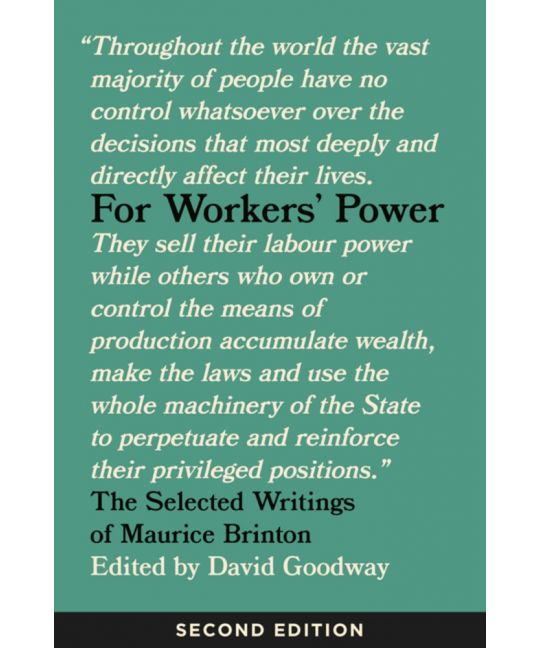
For Workers’ Power
“An eloquent testimony to Maurice Brinton’s life and works … The work he started and the vision he held are as valid now as they were fifty years ago. The struggle, as they say, continues, and there is much here that can inform that struggle.” —Richard Alexander, author of Anarchists in the Spanish Civil War
“For Workers’ Power is a rousing collection of dozens of essays … [that] permeate with an intensely critical eye toward how everyday working people have and can liberate themselves from the oppression, drudgery, and weight of capitalism, while avoiding what Brinton saw as pseudo- or counterrevolutionary methods of many leftists.” —Dana Williams, International Labor and Working-Class History
Since the 1960s, many radicals have had their eyes opened by the writing of Maurice Brinton. The most prolific writer of the British Solidarity group, which existed from 1961 to 1992, his work toppled countless dusty towers of standard leftist thinking. For Brinton, “actually existing socialism” did not, in fact, exist. It had to be created.
Brinton wrote with passion, clarity, and consistency on behalf of worker self-activity and self-management, and he decried those who reinforced passivity, apathy, cynicism, pecking orders, and alienation among workers. To him, this oppressive behavior was as prevalent among state socialists and communist parties as it was among capitalists, because it enabled rulers and would-be rulers of every political stripe to deceive and manipulate those in whose name they claimed to act. Today, when a new crop of so-called democratic socialists are seeking state power, allegedly on behalf of working people, Brinton’s work is as relevant as ever.
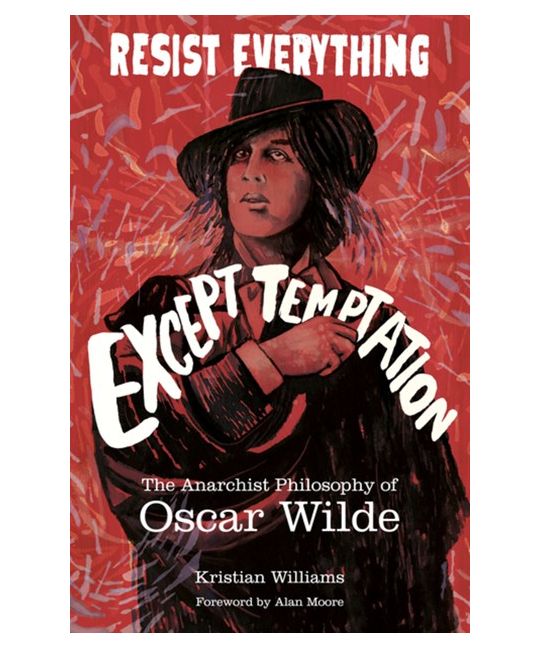
Resist Everything Except Temptation
Oscar Wilde is remembered as a wit and a dandy, as a gay martyr, and as a brilliant writer, but his philosophical depth and political radicalism are often forgotten. Resist Everything Except Temptation locates Wilde in the tradition of left-wing anarchism, and argues that only when we take his politics seriously can we begin to understand the man, his life, and his work. Drawing from literary, historical, and biographical evidence, including archival research, the book outlines the philosophical influences and political implications of Wilde’s ideas on art, sex, morality, violence, and above all, individualism.
Williams raises questions about the relationships between culture and politics, between utopian aspirations and practical programs, and between individualism, group identity, and class struggle. The resulting volume represents, not merely a historical curiosity, but a contribution to current debates within political theory and a salvo in the broader culture wars.
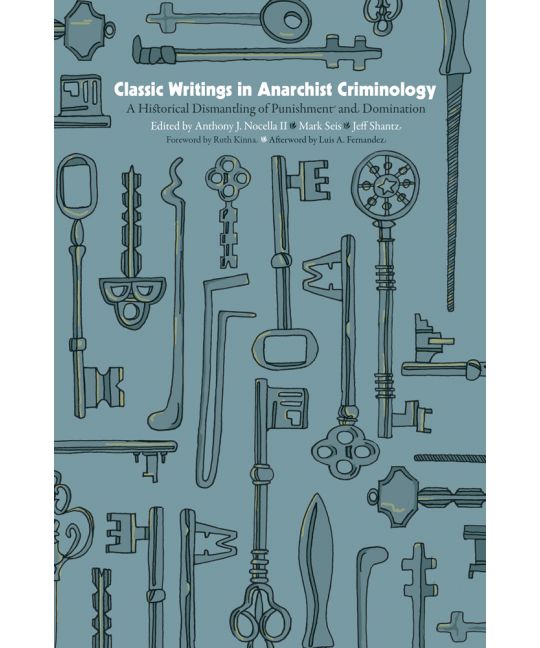
Classic Writings in Anarchist Criminology
Anarchists were among the earliest modern thinkers to offer a systemic critique of criminal justice and among the first to directly criticize academic criminology while formulating a critical criminology. They identified the sources of social problems in social structures and relations of inequality and recognized that the institutions preferred by mainstream criminologists as would-be solutions to social problems were actually the causes or enablers of those harms in the first place.
This volume collects critical writings on criminology from radicals and thinkers like William Godwin, Pierre-Joseph Proudhon, Mikahil Bakunin, Peter Kropotkin, Lucy Parsons, Emma Goldman, and many others.
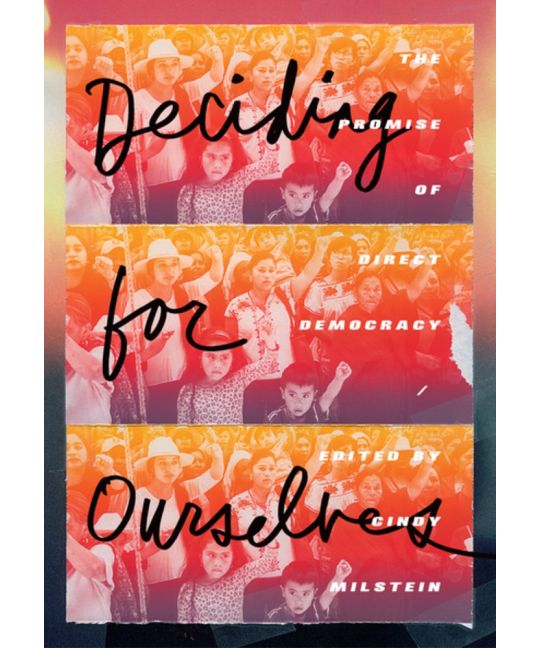
Deciding for Ourselves
In a time of social and ecological crises, people everywhere are looking for solutions. States and capitalism, rather than providing them, only make matters worse. There’s a growing sense that we’ll have to fix this mess on our own. But how? Deciding for Ourselves, in the spirit of the Zapatistas, demonstrates that “the impossible is possible.”
A better world through self-determination and self-governance is not only achievable. It is already happening in urban and rural communities around the world—from Mexico to Rojava, Denmark to Greece—as an implicit or explicit replacement for nations, police, and other forms of hierarchical social control.
This anthology explores this “sense of freedom in the air,” as one piece puts it, by looking at contemporary examples of autonomous, directly democratic spaces and the real-world dilemmas they experience, all the while underscoring the egalitarian ways of life that are collectively generated in them.
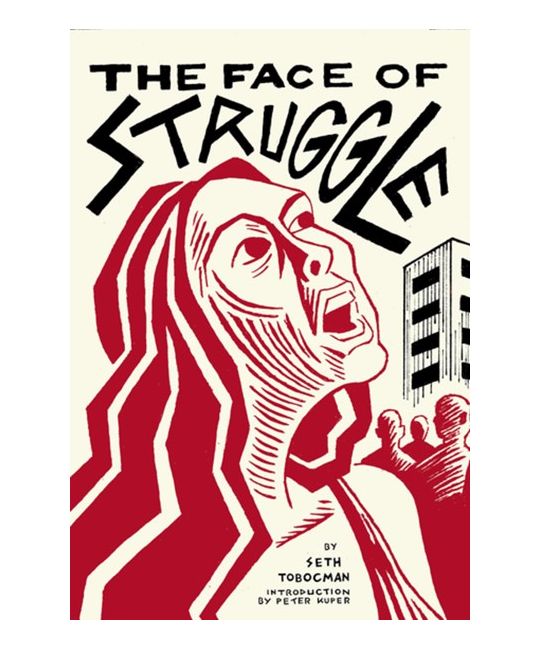
The Face of Struggle
Using the time-honored technique of the wordless graphic novel as developed by Frans Masereel and Lynd Ward, this book is an allegorical take on our current age strongman politics, a worldwide nightmare in which thugs like Trump herald the possible rise of a new, modern form of fascism.
In a series of thirty-seven striking two-color images, Tobocman traces the dynamics of political discontent and struggle, including how right-wing politicians like Donald Trump co-opt and redirect mass frustration and anger in ways that strengthen the very forces that cause discontent in the first place.
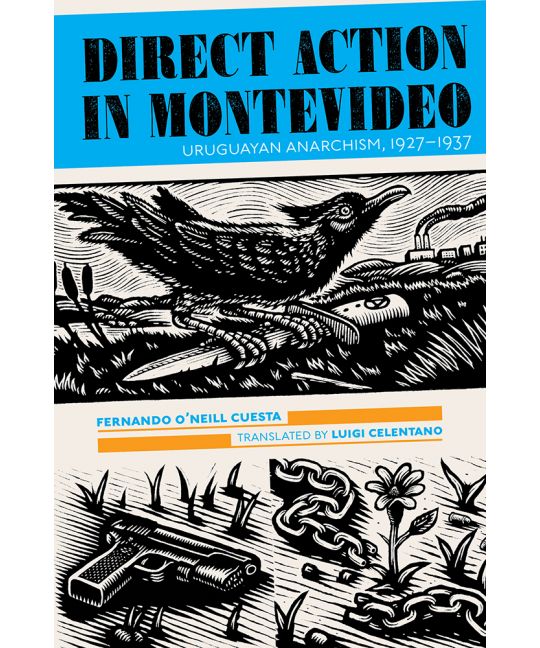
Direct Action in Montevideo
Direct Action in Montevideo is the astonishing tale of anarchists willing to use extraordinary methods to achieve their goals. Seen as mere criminals by the legal system, the author met many of them in prison, where he was serving his own sentence. Politicized by his experiences, he went on to eventually write their story, which was also the story of a culture of solidarity and resistance in the face of oppression. These men were rebels who violated the norms of a social order they considered unjust, often responding to the violence of exploitation and immiseration with a violence of their own, robbing banks to fund revolutionary activities, planting bombs, fighting strikebreakers, aiding fugitives, and attacking, even assassinating, bosses and political figures.
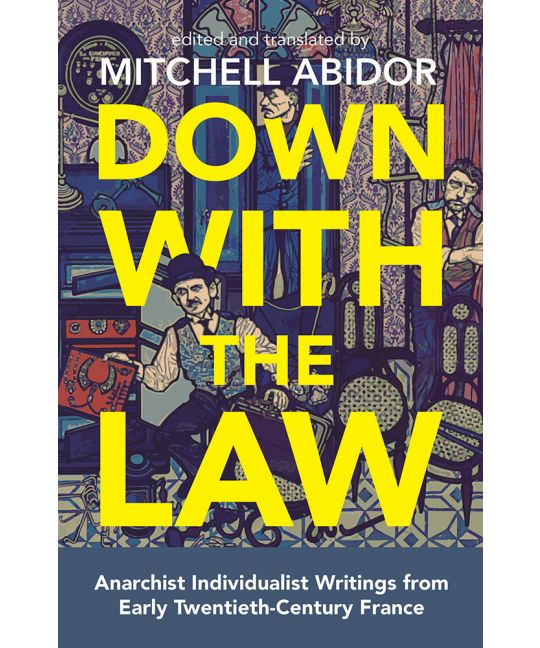
Down With the Law
Primarily known for its inspiring history of mass uprisings and revolutions, France was also, in the first years of the 20th century, the home of a vibrant, varied, and active anarchist individualist movement, which included figures like Albert Libertad, Emile Armand, André Lorulot, and the young Victor Serge. Skeptical about the possibility of the victory of a working-class revolution, they believed that rather than wait for that hypothetical event it was up to each individual to make his or her own revolution in their daily life in the here and now, refusing to accept any of society’s rules and constraints and insisting on the need to live in accordance with one’s values. While these writings have been given short shrift by English-language historians of French anarchism and radicalism, Down with the Law provides a wide range of voices from within this neglected movement, including a first-hand account of life among the members of the Bonnot Gang.
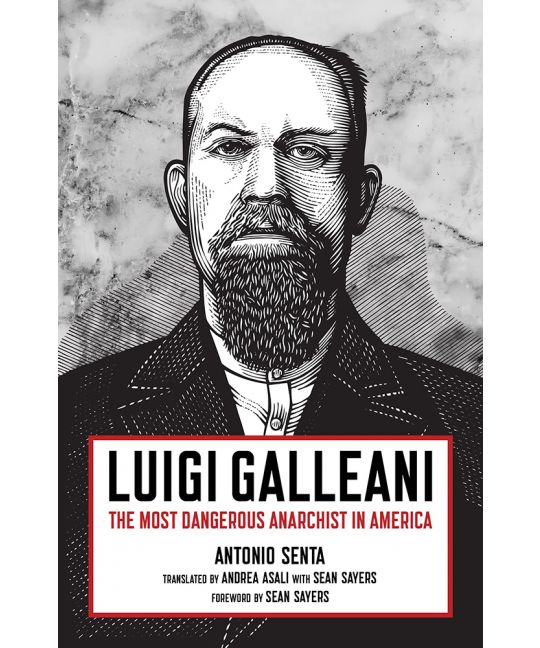
Luigi Galleani
Born in Vercelli in 1861, Luigi Galleani is considered, with Errico Malatesta, the most influential militant of Italian-speaking anarchism. A tireless thinker, agitator, and public speaker, he attracted large numbers of workers to the revolutionary cause in Italy and the United States. This book, the result of a fruitful collaboration between Antonio Senta, a scholar of anarchist history, and Sean Sayers, a philosopher and Galleani’s grandson, is the biography of one of the most charismatic exponents of workers’ struggles in Europe and the United States between the nineteenth and twentieth centuries.
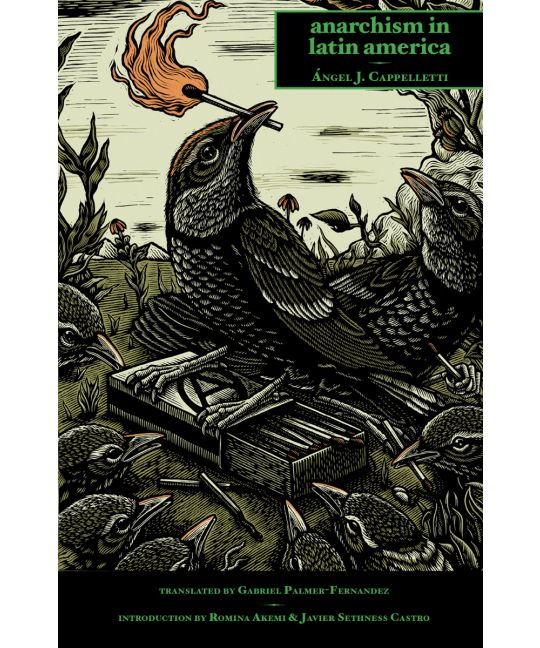
Anarchism in Latin America
“This book will introduce American readers to the extraordinary history of anarchism among our southern neighbors.” —Staughton Lynd, co-author of Wobblies and Zapatistas: Conversations on Anarchism, Marxism, and Radical History.
The available material in English discussing Latin American anarchism tends to be fragmentary, country-specific, or focused on single individuals. This new translation of Ángel Cappelletti’s wide-ranging, country-by- country historical overview of anarchism’s social and political achievements in fourteen Latin American nations is one of the few book-length regional histories published in English. With a foreword by the translator and an introduction by Romina Akemi and Javier Sethness-Castro.
“For the first time, English-language audiences have access to Ángel Cappelletti’s Anarchism in Latin America, one of the historiographical cornerstones of Latin American anarchism…an invaluable introduction to the hemispheric history of anarchism in Latin America. Gabriel Palmer-Fernández’s clear, skilled, and lucid translation includes an insightful introduction by modern scholar-activists that updates Cappelletti by expanding our understanding of how anarchists have dealt with feminist, environmental, and indigenous issues.” —Kirwin Shaffer, author of Black Flag Boricuas: Anarchism, Antiauthoritarianism, and the Left in Puerto Rico, 1897–1921
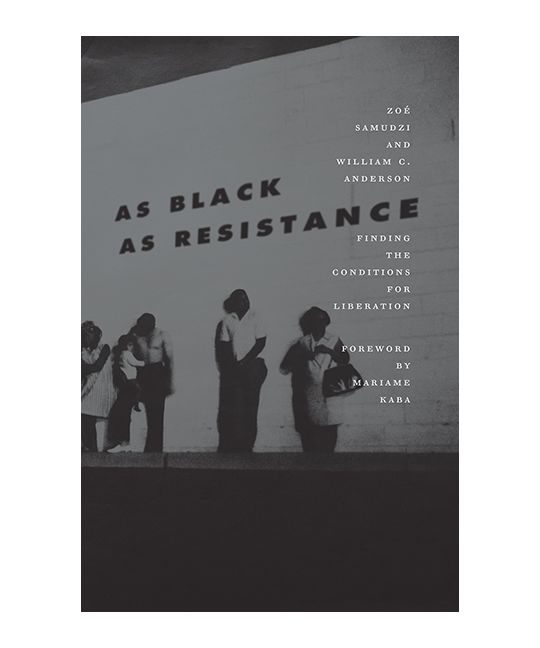
As Black As Resistance
Over the course of United States history, resistance against oppression and the gains made from various struggles for everyone’s equality have often been Black led. However, liberal politics and the lack of strong leftist political power are two problems impeding the continued progress of Black America. Expanding on their original essay The Anarchism Of Blackness, Samudzi and Anderson make the case for a new program of transformative politics for Black Americans, one rooted in an anarchistic framework likened to the Black experience itself. This is not a compromising book that negotiates with intolerance. As Black as Resistance is a declaration for everyone who is ready to continue progressing towards liberation for all people.
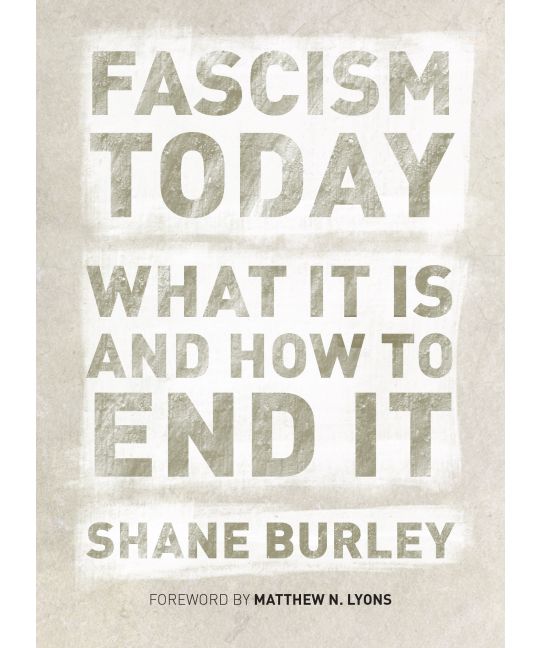
Fascism Today
“No better volume exists to understand the nexus of alt-right bigotry and anti-fascist resistance in the United States than Fascism Today. Burley’s work is an essential ‘tool for opposition’ that brings to bear years of in-depth research and investigation into the resurgence of the far right. To destroy fascism, we must first understand it—that understanding starts here.”—Mark Bray, historian and author of Antifa: The Anti-Fascist Handbook
Fascism Today looks at the changing world of the far right in Donald Trump’s America. Examining the modern fascist movement’s various strains, Shane Burley has written an accessible primer about what its adherents believe, how they organize, and what future they have in the United States. Just as importantly, Fascism Today shows how they can be fought and beaten.
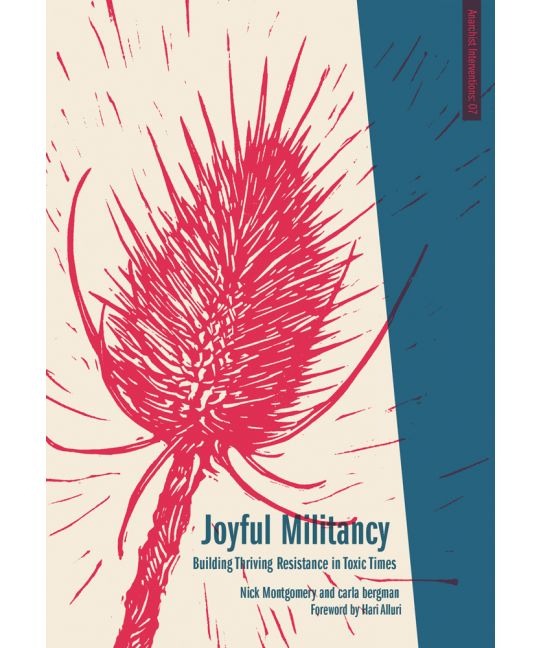
Joyful Militancy
Why do radical movements and spaces sometimes feel laden with fear, anxiety, suspicion, self-righteousness, and competition? Montgomery and bergman call this phenomenon rigid radicalism: congealed and toxic ways of relating that have seeped into social movements, posing as the “correct” way of being radical. In conversation with organizers and intellectuals from a wide variety of political currents, the authors explore how rigid radicalism smuggles itself into radical spaces, and how it is being undone.
Interviewees include Silvia Federici, adrienne maree brown, Marina Sitrin, Gustavo Esteva, Leanne Betasamosake Simpson, Walidah Imarisha, Margaret Killjoy, Glen Coulthard, Richard Day, and more.
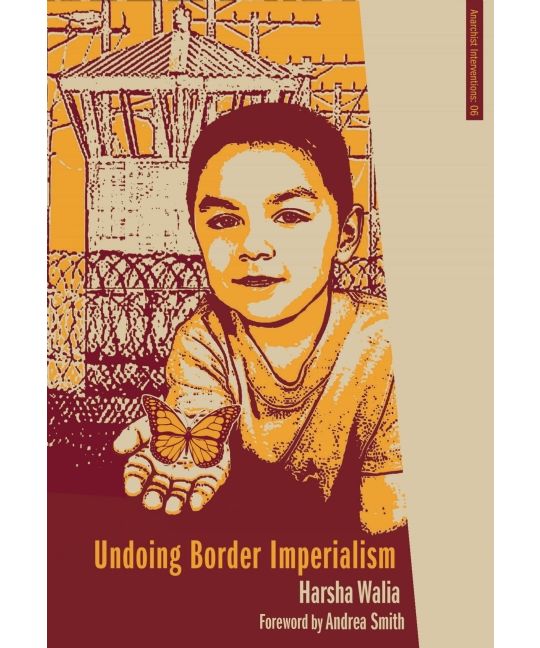
Undoing Border Imperialism
“Harsha Walia has played a central role in building some of North America’s most innovative, diverse, and effective new movements. That this brilliant organizer and theorist has found time to share her wisdom in this book is a tremendous gift to us all.” —Naomi Klein, author of The Shock Doctrine
Undoing Border Imperialism combines academic discourse, lived experiences of displacement, and movement-based practices into an exciting new book. By reformulating immigrant rights movements within a transnational analysis of capitalism, labor exploitation, settler colonialism, state building, and racialized empire, it provides the alternative conceptual frameworks of border imperialism and decolonization. Drawing on the author’s experiences in No One Is Illegal, this work offers relevant insights for all social movement organizers on effective strategies to overcome the barriers and borders within movements in order to cultivate fierce, loving, and sustainable communities of resistance striving toward liberation. The author grounds the book in collective vision, with short contributions from over twenty organizers and writers from across North America.
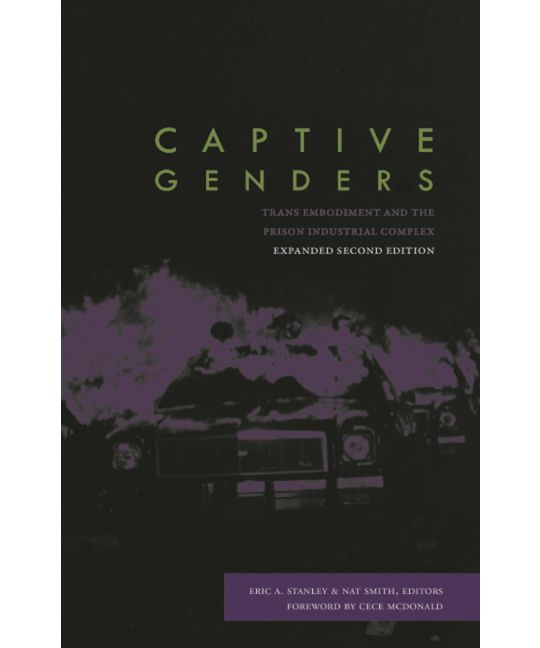
Captive Genders
Pathologized, terrorized, and confined, trans/gender non-conforming and queer folks have always struggled against the prison industrial complex. Eric A. Stanley and Nat Smith bring together current and former prisoners, activists, and academics for a new understanding of how race, gender, ability, and sexuality are lived under the crushing weight of captivity. Through a politic of gender self-determination, this collection argues that trans/queer liberation and prison abolition must be grown together.
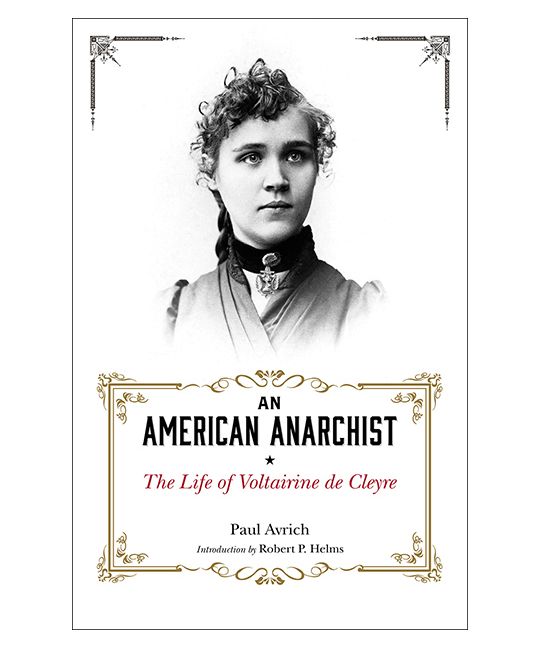
An American Anarchist
When it was first published, An American Anarchist marked a trail historians of American anarchism are still following today. Narrative-driven like all of Paul Avrich’s works, it presents Voltairine de Cleyre and her fellow anarchists as complex human beings. De Cleyre (1866–1912) was the first prominent American-born anarchist. From her writings and speeches, through the illnesses that plagued her, the assassination attempt that left her clinging to life, to her early death at forty- five, she worked tirelessly for her ideal. Avrich places her squarely in her vibrant milieu, highlighting famous characters like Emma Goldman and Alexander Berkman and the infamous, like Dyer D. Lum—Voltairine de Cleyre’s lover and the man who sneaked a dynamite cartridge into Louis Lingg’s cell so the accused Haymarket Martyr could die at his own hand and not the state’s. This edition includes a new introduction by historian Robert P. Helms.
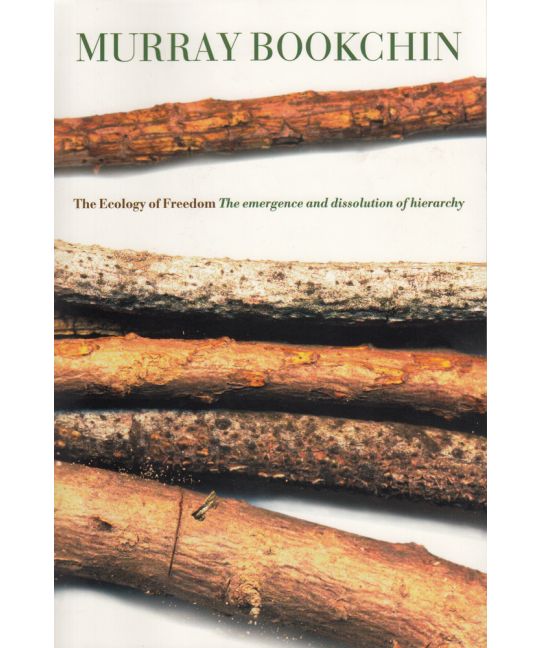
Ecology of Freedom
“The very notion of the domination of nature by man stems from the very real domination of human by human.”
With this succinct formulation, Murray Bookchin launches his most ambitious work, The Ecology of Freedom. An engaging and extremely readable book of breathtaking scope, its inspired synthesis of ecology, anthropology, and political theory traces our conflicting legacies of hierarchy and freedom, from the first emergence of human culture to today’s globalized capitalism, constantly pointing the way to a sane, sustainable ecological future. On a college syllabus or in an activist’s backpack, this book is indispensable reading for anyone who’s tired of living in a world where everything is an exploitable resource.

Turn This World Inside Out
As Nora Samaran writes, “violence is nurturance turned backwards.” In its place, she proposes “nurturance culture” as the opposite of rape culture, suggesting that models of care and accountability—different from “call-outs” rooted in the politics of guilt—can move toward dismantling systems of dominance and oppression.
When communities identify and interrupt systemic violence, prioritize the needs of those harmed, and hold a circle of belonging that humanizes everyone, they create a foundation that can begin to resist and repair the harms inflicted by patriarchy, white supremacy, and capitalism. Emerging from insights in gender studies, race theory, and psychology, and influenced by contemporary social movements, Turn This World Inside Out engages today’s crucial questions, helping move us beyond seemingly intractable barriers to collective change.
Includes the essays “The Opposite of Rape Culture Is Nurturance Culture,” “On Gaslighting,” and “Own, Apologize, Repair,” as well as conversations with Serena Bhandar, Ruby Smith Díaz, Aravinda Ananda, Natalie Knight, and Alix Johnson.
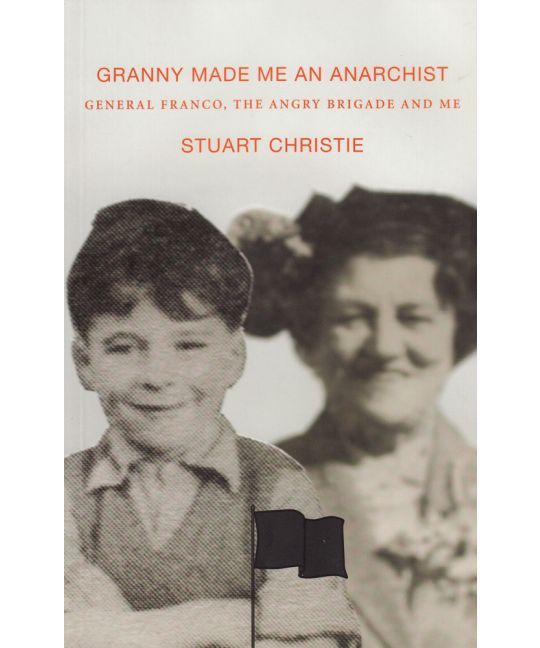
Granny Made Me an Anarchist
Stuart Christie is the rarest of revolutionaries—a committed freedom fighter and a gentle warrior who can also spin a cracking good yarn. From the working class streets of Glasgow as a wee lad to the gaols of fascist Spain as an 18-year-old anarchist, Christie draws his readers into the thick of things, on the move and on the run. The result is a compelling portrait of both a man and a time. Christie became Britain’s most famous anarchist in 1964 when he was arrested for smuggling explosives in a plot to assassinate Spanish dictator, Francisco Franco. Charged with “Banditry and Terrorism,” he served three years of his twenty-year sentence before international pressure (from Bertrand Russell and Jean Paul Sartre among many others), as well as a note from his Mum, secured his release. Five years later, he stood trial in London for alleged involvement with Britain’s Angry Brigade, an urban guerilla group, but was this time acquitted. He is the cofounder of Anarchist Black Cross, Black Flag magazine, and Cienfuegos Press.
